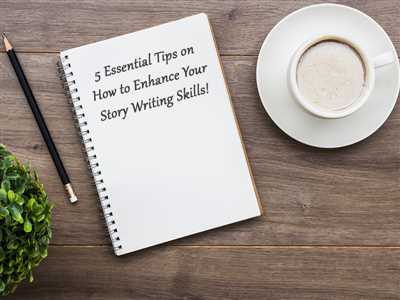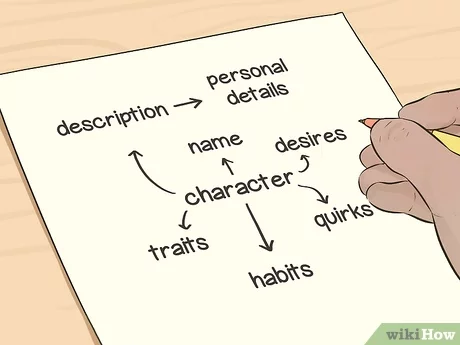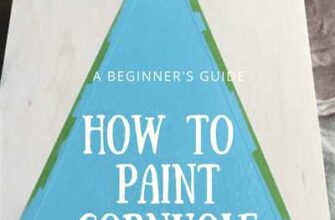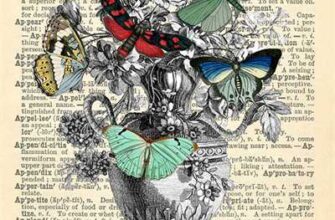
Writing a story can be a daunting task, especially for some beginner writers. Many struggle to begin with a plot and often find themselves unsure of where to start. However, there are several strategies and techniques that writers can use to improve their storytelling abilities and create amazing narratives.
One important aspect of storytelling is plotting. Before diving into writing, it is essential to spend some time developing the plot and structure of the story. This can be done by creating an outline or a plan, which will help you make changes and see how the different elements of the story will play out.
Another strategy is to read widely and analyze the works of well-known authors. By reading various genres such as fiction, short stories, and even news articles, you can learn different writing techniques and devices that can be applied to your own storytelling. Pay attention to how authors use adjectives, verbs, and plot twists to engage the reader and create an engaging narrative.
For those who prefer a more spontaneous approach, it can often work well to “pants” or write by the seat of your pants. This approach involves starting with a general idea or concept and allowing the story to unfold as you write. While this method may not work for everyone, it can lead to unexpected and exciting plot twists that may not have been possible with a detailed outline.
Regardless of the strategy you choose, it is important to remember that writing is a skill that can be improved with practice. Take the time to revise and edit your work, making changes as necessary to improve the flow and clarity of your story. Additionally, be open to feedback from others, as their perspectives can provide valuable insights into ways you can further enhance your storytelling abilities.
In conclusion, improving your story writing skills involves a combination of planning, reading, and practicing different techniques. By utilizing these strategies, you can create engaging narratives that captivate readers and leave a lasting impression. So, whether you are a seasoned writer or just starting out, take the time to improve your storytelling abilities and watch your stories come to life!
- 10 Amazing Books That Will Improve Your Writing Skills
- 1. “On Writing” by Stephen King
- 2. “Bird by Bird” by Anne Lamott
- 3. “Steal Like an Artist” by Austin Kleon
- 4. “Plotting and Writing Suspense Fiction” by Patricia Highsmith
- 5. “Outlining Your Novel” by K.M. Weiland
- 6. “The Elements of Style” by Strunk and White
- 7. “Writing Down the Bones” by Natalie Goldberg
- 8. “On Writing Well” by William Zinsser
- 9. “The Art of Fiction” by John Gardner
- 10. “Story” by Robert McKee
- Even pantsers need to plan
- Why do pantsers need a plan?
- Play with plot devices in shorter fiction
- Use Verbs and Adjectives Well
- Video:
- Three anti-social skills to improve your writing – Nadia Kalman
10 Amazing Books That Will Improve Your Writing Skills
As a writer, you may know that there are always some starting changes you need to make to improve your skills. Whether you’re a first-time writer or a seasoned author, there’s always something new to learn. Reading books about writing can provide valuable insights and strategies that will help you become a better storyteller. Here are 10 amazing books that can enhance your writing skills:
1. “On Writing” by Stephen King
This well-known book by Stephen King is a must-read for any writer. It provides valuable advice on how to improve your writing style and techniques. King shares his own experiences and provides practical tips on developing a writer’s craft.
2. “Bird by Bird” by Anne Lamott
Anne Lamott’s “Bird by Bird” is a classic book that offers insightful and hilarious guidance for writers. It explores the challenges writers face and provides tips on everything from character development to finding your authentic voice.
These books not only offer practical advice, but they also encourage you to read more in order to improve your own writing. They highlight the importance of reading different genres and styles to enhance your knowledge and broaden your writing horizon.
While there’s no one-size-fits-all approach to writing, these books provide valuable tools and techniques to help you develop your own unique style. They teach you how to craft compelling plots, create dynamic and believable characters, and structure your narratives effectively.
3. “Steal Like an Artist” by Austin Kleon
Austin Kleon’s “Steal Like an Artist” offers a fresh perspective on creativity and borrowing ideas. It encourages writers to look for inspiration in unexpected places and to embrace their own unique voice and ideas.
4. “Plotting and Writing Suspense Fiction” by Patricia Highsmith
This book by Patricia Highsmith focuses on the craft of writing suspense fiction. It discusses the importance of creating tension, building a compelling plot, and adding unexpected twists to keep readers engaged.
5. “Outlining Your Novel” by K.M. Weiland
If you’re a fan of outlining your stories before you begin writing, this book is a must-read. K.M. Weiland offers practical advice on how to create a solid outline that will guide your writing process and help you stay focused.
6. “The Elements of Style” by Strunk and White
This classic guide to writing is a must-have for any writer. It provides essential rules and guidelines for effective writing, including proper grammar usage, punctuation, and style. Understanding the basic principles covered in this book is crucial for improving your writing skills.
7. “Writing Down the Bones” by Natalie Goldberg
Natalie Goldberg’s “Writing Down the Bones” explores the practice of writing as a way to discover and express yourself. It offers valuable tips on how to overcome writer’s block, silence your inner critic, and develop a writing routine.
8. “On Writing Well” by William Zinsser

William Zinsser’s “On Writing Well” focuses on non-fiction writing and offers practical advice on how to improve your writing in any genre. It emphasizes the importance of clarity, simplicity, and engaging storytelling.
9. “The Art of Fiction” by John Gardner
John Gardner’s “The Art of Fiction” is a comprehensive guide to writing great fiction. It covers everything from character development to creating engaging dialogue and crafting effective descriptions. This book provides valuable insights into the mechanics of storytelling.
10. “Story” by Robert McKee

Robert McKee’s “Story” is a legendary book that explores the principles of storytelling. It delves into the art of creating compelling narratives, developing well-rounded characters, and structuring your story to engage readers from beginning to end.
By reading these amazing books on writing, you can gain valuable knowledge and insights that will enhance your writing skills. Remember, there’s always room for improvement, and these books will help you take your writing to the next level!
Even pantsers need to plan
When it comes to writing a narrative, whether it’s a short story or a novel, having a plan in place will make a world of difference. This applies to all writers, including those who prefer to “pants” their way through a book. Pantsers are writers who dive into their writing without much pre-planning or outlining. They prefer to let the story unfold naturally as they go along. While this free-flowing approach can lead to amazing creative breakthroughs, it can also lead to some challenges and roadblocks.
If you’re a pantser, you may find yourself stuck in the middle of your story, unsure of where to go next. Or you might hit a point where your characters feel flat or your plot lacks tension and excitement. These are common issues that all writers face, but having a plan or outline in place can help to overcome them.
Why do pantsers need a plan?
Having a plan doesn’t mean that pantsers have to abandon their spontaneous and organic writing process. Instead, it provides a roadmap for creativity and helps to guide the story in a direction that will captivate readers. Here are 10 reasons why even pantsers can benefit from a plan:
- A plan helps you start strong: With a clear idea of the beginning, middle, and end, you can start your story with a bang and hook your readers from the first page.
- A plan allows you to create a well-structured plot: By outlining the key events and turning points in your story, you can ensure that your narrative flows smoothly and keeps readers engaged.
- A plan helps you develop each character: With an understanding of each character’s motivations, personality traits, and character arcs, you can create well-rounded and relatable characters.
- A plan gives you the freedom to make changes: Having a plan doesn’t mean you’re locked into a rigid structure. It’s a flexible framework that allows for twists, turns, and unexpected developments along the way.
- A plan helps you use literary devices effectively: By knowing in advance which literary devices you want to incorporate, you can weave them into your story seamlessly.
- A plan keeps the action moving: With a plan, you can strategically place action scenes and keep the pace of your story fast and thrilling.
- A plan enhances your descriptive skills: By mapping out key settings and scenes in advance, you can focus on bringing them to life with vivid imagery and sensory details.
- A plan ensures a satisfying ending: Knowing where your story is headed will help you craft a satisfying and resonant ending that leaves readers wanting more.
- A plan can make writing shorter books easier: For pantsers who tend to go off on tangents, having a plan can help keep the story focused and prevent it from becoming too long or meandering.
- A plan gives you a starting point for editing: Once you reach the end of your first draft, having a plan in place will make it easier to identify areas that need revision or improvement.
So, even if you’re a pantser at heart, consider giving planning a try. It doesn’t have to be a detailed outline or a rigid roadmap; it can be a simple framework that allows for spontaneity and creativity. Find a planning strategy that works for you, whether it’s a basic plot outline or a series of key scenes, and start incorporating it into your writing process. You might be surprised at how a little bit of planning can take your storytelling skills to the next level.
Remember, there’s no one-size-fits-all approach to writing, and what works for one writer may not work for another. But if you’re finding yourself struggling to keep the momentum of your story, or if you want to improve your plotting and narrative techniques, give planning a chance. Even pantsers can benefit from a little bit of structure and direction in their writing journey. Good luck, and happy writing!
Play with plot devices in shorter fiction
When it comes to writing shorter fiction, one of the most effective ways to improve your storytelling skills is to play with different plot devices. These devices can add depth and excitement to your story, making it more engaging and memorable for the reader.
One popular plot device that writers often use is the twist ending. Much like in longer works, a twist ending in a shorter fiction piece can leave the reader stunned and amazed. By introducing unexpected changes and revelations, you can create a memorable and impactful ending to your story.
Another plot device that works well in shorter fiction is the use of adjectives and verbs to paint a vivid picture for the reader. By carefully choosing descriptive language, you can bring your narrative to life and make it more engaging. Instead of simply stating that a character is “happy,” you can use adjectives like “ecstatic” or “overjoyed” to convey a stronger sense of emotion.
For those writers who like to work without a detailed plan, also known as “pantsers,” shorter fiction can be a great opportunity to experiment with different narrative structures. Since the scope of the story is smaller, you can easily make changes and try out new strategies without feeling overwhelmed. This can help you discover new approaches to storytelling and improve your overall writing skills.
One device that is often used in shorter fiction is the “show, don’t tell” technique. Instead of telling the reader what is happening, you can use descriptive language to show the action in a more engaging way. This not only helps the reader to visualize the story, but it also adds depth and richness to the narrative.
Another plot device that works well in shorter fiction is the use of a time jump. By skipping ahead in time, you can quickly advance the action and create a sense of urgency in your story. This can be especially effective when used in conjunction with a twist ending.
While the list of plot devices goes on and on, it’s important to remember that there’s no “right” or “wrong” way to use them. Each writer will have their own unique style and preferences, so it’s important to experiment and find what works best for you. Whether you prefer to outline your story before you begin or make it up as you go along, there are endless opportunities to play with plot devices in shorter fiction.
So, whether you’re a seasoned writer or just starting out, take some time to explore different plot devices in your shorter fiction. You may be surprised at the amazing twists and turns your stories can take when you allow yourself to play with different strategies. Remember, writing is like an iceberg – what the reader sees on the surface is only a small fraction of the work that goes into crafting a compelling story.
Read books by other successful writers in the genre to see how they use plot devices in their shorter fiction. You’ll likely find inspiration and new ideas to incorporate into your own work. By improving your plotting skills and experimenting with different devices, you can make your shorter fiction stories even more captivating and impactful for your readers.
Use Verbs and Adjectives Well
When it comes to writing stories, your choice of verbs and adjectives can make a big difference in how engaging and captivating your writing is. Verbs and adjectives help paint a picture for the reader and bring your story to life. Here are 10 strategies you can use to improve your skills in using verbs and adjectives effectively:
1. Begin with a strong verb: Starting your sentences with a strong action verb can immediately capture the reader’s attention. Instead of using passive verbs like “is” or “was,” opt for dynamic verbs that convey more action and movement.
2. Use vivid adjectives: Instead of relying on generic adjectives like “nice” or “good,” choose descriptive adjectives that paint a clear and specific picture. This will help bring your story to life and make it more engaging for the reader.
3. Plan your verb usage: While it’s important to have spontaneity in your writing, having a plan for which verbs to use can help with plotting and pacing. Consider outlining your story and highlighting key verbs that will move the plot forward.
4. Use different verb forms: Using a variety of verb forms can add depth and complexity to your writing. Experiment with different tenses, voices, and moods to create a more dynamic narrative.
5. Use adjectives sparingly: While adjectives can add flavor to your writing, using too many can make your prose feel heavy and sluggish. Choose only the most essential and impactful adjectives to use in your writing.
6. Make use of literary devices: Literary devices such as similes, metaphors, and personification can add layers of meaning to your writing. They can also help you find fresh and creative ways to describe actions and emotions.
7. Use verbs and adjectives that evoke emotion: To create a strong emotional response in your reader, choose verbs and adjectives that elicit the desired emotions. Show, don’t tell, and let the reader experience the story through your carefully chosen words.
8. Twist the plot with unexpected verbs and adjectives: Surprise your readers by using verbs and adjectives that are unexpected or unconventional. This can add a twist to your plot and keep your readers engaged.
9. Work with other writers: Collaborating with other writers can help you expand your vocabulary and learn new ways to use verbs and adjectives. Sharing ideas and critiques can also help you refine your writing and make it stronger.
10. Read books and news articles: Reading books and news articles can expose you to different writing styles and vocabulary. Pay attention to how authors use verbs and adjectives to create captivating stories, and apply these techniques to your own writing.
By using verbs and adjectives well, you can create amazing stories that will captivate your readers. Whether you’re a pantser who starts writing without a plan or a plotter who outlines every detail before starting, these strategies will help you improve your writing skills and make your stories more engaging.









